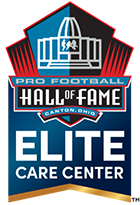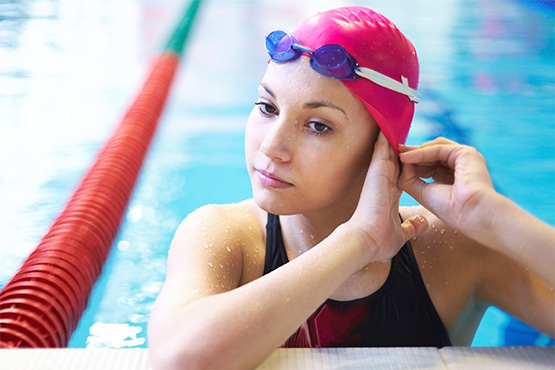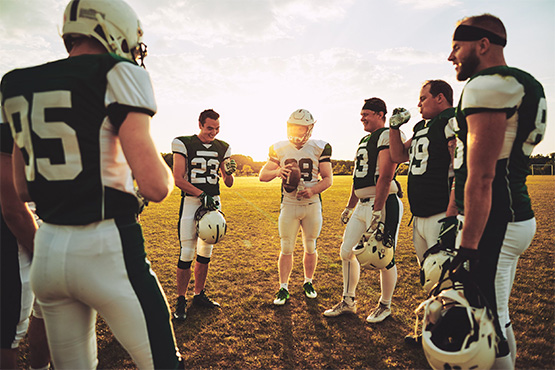Eating Disorders in Athletes
Participating in collegiate and professional sports offers exceptional avenues for competition, honing teamwork and leadership skills, as well as maintaining physical fitness. Nevertheless, the life of an athlete is not always gold. Unfortunately, athletes and eating disorders are a common occurrence. The rigorous demands of college athletics make student-athletes especially susceptible to developing eating disorders and engaging in compulsive exercise. The National Library of Medicine reveals that an astonishing 84% of collegiate athletes adopt unhealthy behaviors to control their weight and eating habits. These practices include binge eating, excessive exercising, strict dieting, fasting, self-induced vomiting, and utilizing weight loss supplements.
Athletes are ingrained with the belief that they must embody toughness both mentally and physically. Consequently, many athletes suffering from eating disorders go unnoticed because their bodies appear muscular, while their internal well-being tells a different story. Being an athlete is an arduous pursuit; if it were effortless, everyone would partake in it. Success in sports requires resilience, self-assurance, and unwavering determination. Unfortunately, at times, this determination can compromise one’s overall health. The pressure to excel at such a demanding level is undeniably immense. From early morning weight training sessions to afternoon film analysis and mid-day practices, athletes continuously push their limits.
These conclusions hold stronger validity in sports that prioritize a lean physique, where being slim or lightweight offers a competitive edge compared to other body types.
- Gymnastics, diving, bodybuilding, and wrestling are all examples of sports that place emphasis on physical appearance, weight criteria, or muscular development.
- Sports that prioritize individual performance rather than team dynamics, such as gymnastics, running, skating, dancing, and diving.
- Endurance-based sports like track and field, running, and swimming demand sustained stamina and endurance.
Athletes and Eating Disorder Statistics
Athletes and eating disorders have been the subject of many studies due to their vulnerability. This research revealed the following:
- Up to 45% of female athletes, and 19% of male athletes, struggle with an eating disorder [1].
- 2% of female athletes struggle with anorexia nervosa [2].
- 6% of female and 2% of male athletes will struggle with bulimia nervosa behaviors [4].
Get Help Now
Eating disorders are treatable. Call us now to begin your journey to a happier, healthier you!
855-808-4213
Request a Call
Request a free consultation from an Eating Disorder Coordinator.

Hall of Fame Health Elite Care Center
Eating Disorder Solutions is proud to be an Elite Care Center with Hall of Fame Health, an affiliate of the Pro Football Hall of Fame. We offer specialized eating disorder and mental health treatment for current and former athletes, their families, and those who support them.
Most Often Diagnosed Eating Disorders in Athletes:

- Anorexia nervosa: deliberate caloric intake restriction, an intense fear of gaining weight, and a distorted perception of body image.
- Bulimia nervosa: weight gain due to binge eating, unhealthy compensatory behaviors (like excessive exercise and induced vomiting), and undue weight and shape perception.
- Binge-eating disorder: frequently consuming substantial amounts of food in one sitting and feeling that eating behavior is out of control.
Why Athletes Are At Risk:
Conforming to specific body standards in different sports is widespread and often leads to eating disorders in athletes. Whether it’s actual or perceived, coaches, teammates, and influential figures can contribute significantly to the increased incidence of eating disorders among athletes. Even if athletes exhibit physical signs of good health, it doesn’t make them any less susceptible to developing an eating disorder. Sports like bodybuilding, gymnastics, figure skating, wrestling, rowing, and horse racing pose a higher risk due to their strong emphasis on diet, appearance, size, weight, and aesthetics. Moreover, uniforms that expose the body, regardless of gender, and the assumption of good health based on athletic performance can act as catalysts in the initial stages of these conditions. Consequently, certain athletes face an elevated risk of engaging in disordered eating behaviors.
- Genetic Influence: Genetic factors may contribute to the predisposition for developing eating disorders, with as much as 40-60% of the risk attributed to genetics. However, genetic predisposition alone is not the sole cause of these illnesses, as other factors also come into play.
- Environmental Factors: Various environmental elements, including media influence, cultural factors, brain injuries, significant events, external influences, trauma, and parental influence, play a significant role in causing eating disorders. Individuals often experience societal or cultural pressures related to weight or appearance, yet not everyone who faces these pressures will develop an eating disorder. Females are more prone to suffering from these disorders, with onset often occurring during adolescence.

Health Consequences:
- Electrolyte imbalances, irregular heartbeats, and heart failure if purging behaviors are present
- Premature osteoporosis
- Peptic ulcers, pancreatitis, and gastric rupture

Physical Signs and Symptoms:
- Dehydration
- Constipation and abdominal pain
- Intolerance of cold
- Stress fractures (and overuse injuries)
- Absence of menstruation
- Significant weight loss
- Muscle cramps, weakness, or fatigue
- Dental and gum problems
Behavioral Signs and Symptoms:
- Anxiety and depression
- Claims of “feeling fat” despite being thin
- Excessive exercise
- Excessive use of the restroom
- Difficulty concentrating
- Preoccupation with weight and eating
- Avoidance of eating and eating situations
- Use of laxatives and diet pills
Eating Disorder Treatment for Athletes
- Promote healthy avenues for enhancing athletes’ performance, focusing on methods that foster physical strength and mental well-being. It is crucial to ensure that coaches serve as positive influences and refrain from making negative comments about weight. Select coaches who prioritize motivation over body shape and size, while remaining vigilant for warning signs of eating disorders.
- Be mindful of the impact of social influences and teammates. Foster an environment that promotes a positive perspective on weight, diet, and self-image. Encourage a focus on overall health and fitness rather than frequent weigh-ins. Stay attentive to any signs of abnormal or obsessive behaviors related to food or exercise, which may indicate the presence of an eating disorder.
- Promptly seek mental health treatment if an athlete exhibits warning signs of an eating disorder. Alongside providing nutrition education, make resources for eating disorder treatment for athletes readily available when necessary. However, it is essential to recognize that symptoms and their severity can vary among athletes.
- Finally, it is imperative to destigmatize mental health treatment for athletes and eating disorders. Athletes can greatly benefit from timely and appropriate mental health support recommended and encouraged by influential figures within the sports environment. It should not be overlooked or dismissed as a “temporary” symptom, but rather recognized as the potential onset of a life-threatening illness.
Request a Call
How to Help Put an End to Eating Disorders in Athletes:
Athletes possess unique nutritional requirements distinct from the general population. They must strategically “fuel” their bodies before, during, and after practices and competitions to optimize performance and aid in recovery from intense physical activity. It is important to acknowledge that athletes at various levels, whether elite, high school, college, or professional, approach food differently and may also develop unhealthy relationships with food.
When supporting athletes grappling with disordered eating or exercise behaviors, the individual athlete’s well-being must take precedence over their sport. Effective treatment requires time and commitment, necessitating athletes to focus solely on their recovery without simultaneously engaging in their sport. Though taking a break from the sport to concentrate on treatment and eating disorder recovery may present challenges, doing so significantly enhances an athlete’s chances of safely returning to their chosen sport.
If you or a loved one exhibits signs of struggling with eating habits or weight, initiating the treatment process early is crucial. Our team is specifically trained to address various aspects, including identity issues, performance anxiety, mindfulness, the sporting culture, and transitioning post-career. Reach out to us today at 855-808-4213. Together, we will work towards finding the most suitable path for you—a path that facilitates your recovery, restores the life you deserve, and allows you to reclaim your place in the game.
Resources:
[1] Conviser, J. H., Schlitzer Tierney, A., Nickols, R. (2018). Essential for best practice: treatment approaches for athletes with eating disorders. Journal of Clinical Sports Psychology, 12.
[2] Currie, A. (2010). Sports and eating disorders – understanding and managing the risks.Asian Journal of Sports Medicine, 1:2.
